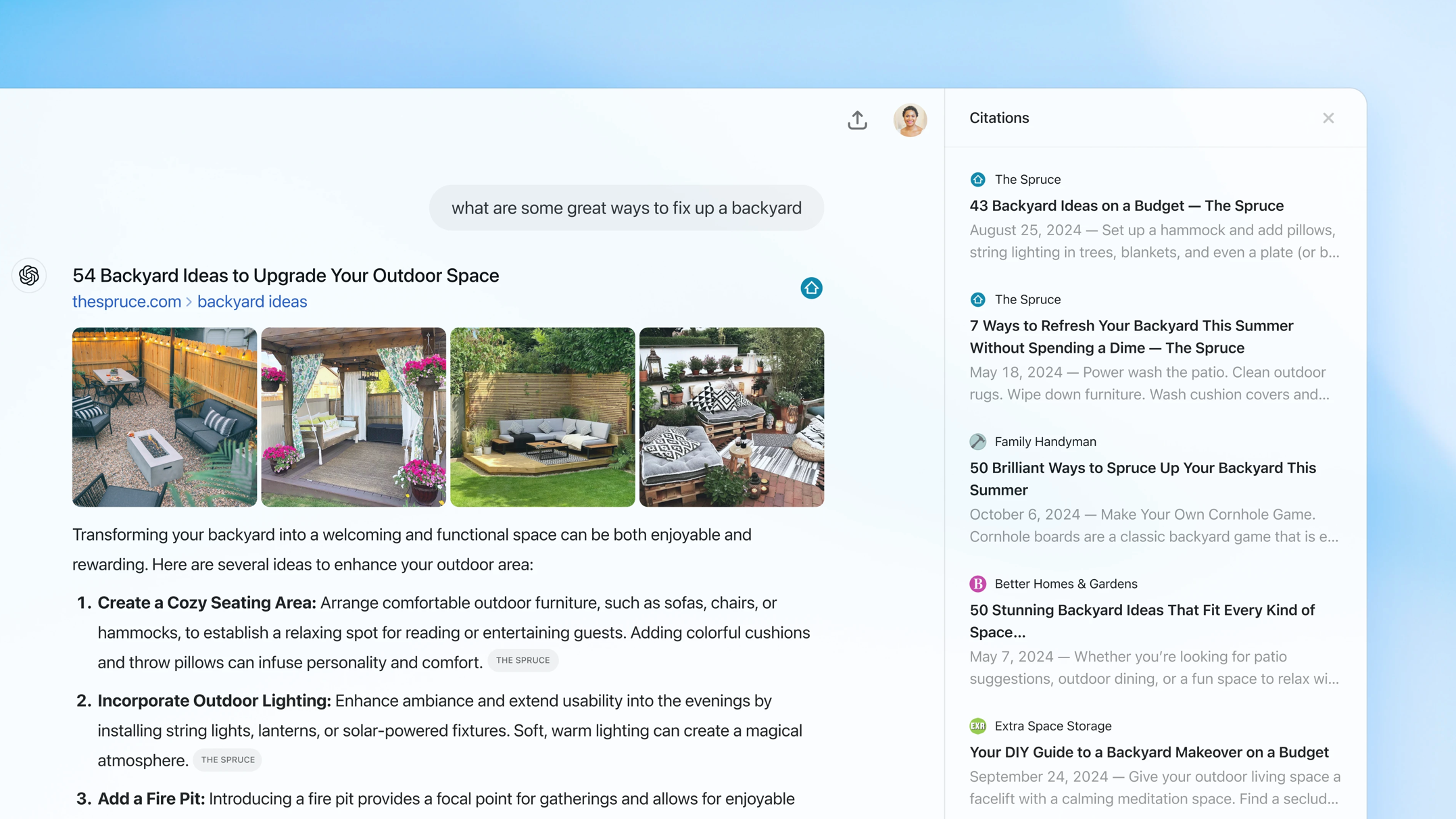It’s been two years since the introduction of ChatGPT—a deep learning chatbot that immediately called Google’s search dominance into question. Today, the “AI search wars” are finally entering full gear as OpenAI rolls out ChatGPT Search functionality to paid subscribers.
ChatGPT Search is not a standalone product. It’s built directly into the standard ChatGPT interface and will be triggered automatically when the AI deems that a web search is necessary, though there’s also a button to manually trigger the search engine.
Interacting with ChatGPT Search isn’t all that different from talking to a standard ChatGPT model. This search engine uses natural language to answer your questions, it can use the full context of a conversation to figure out what you want to know, and it may call upon personal information that was previously committed to memory. You can ask followup questions after receiving search results from ChatGPT, too.
That said, ChatGPT Search is not hampered by a knowledge cutoff date. It can serve up-to-date results for current events, stock prices, sports scores, and weather. It also cites its sources—a sidebar containing links to articles and web pages pops up every time you interact with Search. And you may see images or maps at the top of a web search result when such items are relevant.
This approach is essentially the opposite of Google Search’s AI Overviews system. Google Search is still a traditional search engine—it provides a list of websites that may be relevant to your query—there just happens to be an AI Overview box tacked at the top of some results. ChatGPT Search aims to answer your questions without sending you to any websites, though citations are tacked onto a sidebar to ensure that users can find specific websites, download links, or information when necessary.
The citations feature may also appease publishers and website owners who worry that AI search engines, which are trained on human-written web articles and social media posts, will harm their business. ChatGPT has already been sued by The New York Times for copyright infringement, and rival AI search engine Perplexity is the subject of several copyright suits. For what it’s worth, OpenAI promises to honor websites’ robots.txt crawler preferences and says it won’t scrape paywalled websites that are not affiliated with the ChatGPT media partnership program.
In any case, copyright is expected to be an ongoing problem for companies like OpenAI. The inevitability of AI hallucinations, plus misinformation and search manipulation, is also a problem. ChatGPT Search will screw up in ways both big and small. That is a fact. Google’s boneheaded AI rollout, which taught people to laugh at silly AI mistakes, but we do not know how the public will respond to a major catastrophe.
The decision to launch ChatGPT Search on the same week as the United States’ most reality-bending presidential election is also an odd choice. OpenAI says it will redirect election-related questions to established news sources like AP, but this is sure to be a source of criticism.
ChatGPT Search is currently limited to Plus and Team subscribers on web and mobile platforms. Those who signed up for the SearchGPT waitlist may also access the AI search engine. A rollout for enterprise and education customers will occur over the coming weeks, though free users won’t gain access to ChatGPT Search until the end of 2024 or the beginning of 2025.
Source: OpenAI

